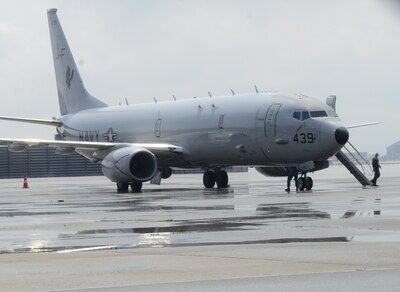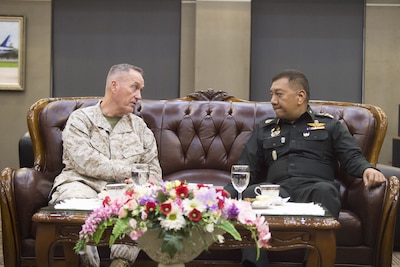By Army Pfc. Josselyn Fuentes, 173rd Airborne Brigade
VICENZA, Italy, Feb. 6, 2018 — It is uncertain what the
record is for the time between Army parachute jumps, but Lt. Col. John Hall may
hold it at 30 years and six months.
When Hall parachuted from a military aircraft last month, it
was the first time he had done so in over thirty years. Hall, a 53-year-old
school teacher at Kearsley High School in Flint, Michigan, is serving a
one-year tour of duty in Vicenza, Italy, as the public affairs officer for the
storied 173rd Airborne Brigade, the contingency response force for U.S. Army
Europe, Africa and the Middle East.
“I first worked with the 173rd Airborne when I was put on
active duty with the Michigan National Guard in 2014 and sent to the Baltic
Countries of Latvia, Lithuania and Estonia in support of Operation Atlantic
Resolve and in support of Latvia, our State Partnership Nation,” Hall said “The
173rd Airborne Public Affairs leaders and I developed a close working
relationship, so last summer when they needed an experienced public affairs
officer to lead their team, I was selected and put on orders.”
The 173rd Brigade commander sent word to Hall that he would
be expected to jump from aircraft as a part of his duties.
“I was really excited and completely terrified at the same
time. I graduated from 'Jump School' when I was 19 years old and last jumped
when I was 22, so I knew what to do,” Hall said with a laugh.
The 173rd put Hall through a one-day airborne refresher
course, he said. This training included parachute landing, actions in the
aircraft and emergency procedures, followed by multiple jumps from a 34-foot
tower in which his technique was assessed.
The next day, Hall reported to Aviano Air Base in northern
Italy, donned his parachute with a couple of hundred other soldiers from the
173rd Airborne Brigade, climbed aboard an Air Force C-17 aircraft and, when
1,200 feet over the Juliet Drop Zone, exited the door and tested his training.
Perfect Landing
“The jet blast spun me in the air so when my 'chute deployed
it was pretty twisted and did not have a full canopy,” Hall said. “I was
surprised that I automatically reached up, pulled the ‘risers’ apart and worked
the parachute fully open. Good training takes over and we automatically do the
right thing. I then checked my position in the sky and prepared to land. It was
all over in less than a minute. I took up a good parachute landing fall
position and the landing was perfect.”
Hall has served in the Army since graduating from LakeVille
High School in the Flint area where he was an All-State wrestler, president of
the school’s student council and where he began dating his eventual wife,
Laura.
“I enlisted as a combat medic when I was 19 years old and
served in the 82nd Airborne Division in the mid-1980s, where we conducted
frequent parachute operations as a part of our combat training,” Hall said.
“After leaving the 82nd, I didn’t think I would ever jump from a military
aircraft ever again.”
Since leaving active duty with the 82nd, Hall has served in
the Army Reserve, the Florida and Michigan National Guard, and has been called
back to active duty -- to include combat duty in Iraq -- on multiple occasions,
but he has not been assigned to a unit with an airborne mission until now.
He was initially commissioned as a cavalry officer following
officer candidate school and served as a Scout Platoon Leader in E Troop, 153rd
Cavalry Regiment in Ocala, Florida. His later assignments include company
commander in the 1-125 Infantry in Flint, Michigan, as well as executive
officer and commander of the 126th Press Camp Headquarters at Fort Custer,
Michigan. It was in the 126th PCH that Hall served a combat tour in Baghdad.
Service in Iraq
Oddly enough, while serving as a press officer for
Multinational Forces Iraq, Hall was serving in a combat zone at the same time
as his daughter, Savannah, who had recently been commissioned as an officer
through the University of Michigan ROTC program.
“My daughter, Savannah, grew up around the Army and has seen
me in uniform since I was in the 82nd Airborne,” Hall said. “She decided when
she went to college that she wanted to enroll in ROTC, serve in the army and be
a paratrooper. It was indeed a proud moment when I pinned her 'Jump Wings' on
her at Fort Benning, Georgia. And now my youngest daughter, Samantha, is
shipping off to Army basic training later this spring. It remains to be seen if
she, too, will become a paratrooper.”
Hall has been working in Vicenza, Italy, on the senior staff
of the 173rd Airborne Brigade since August 2017. In this short time, he has
supported airborne combat training in Latvia, Germany, Slovenia, a historic
mission to Serbia, mountaineering training with the Italian Alpini Brigade, and
next week will travel to Toulouse, France, to support 173rd Airborne combined
engineering operations with French paratroopers.
High Operational Tempo
“The operational tempo here at the 173rd Airborne is intense.
We continually have combat training going on with our NATO allies throughout
Europe,” Hall said. “Our command philosophy is that we are always ‘preparing
our soldiers for the unforgiving crucible of ground combat.'”
A significant part of this, in the 173rd Airborne Brigade,
is conducting airborne operations, so Hall will complete several more jumps
from military aircraft in the coming months.
As far as teaching is concerned, Hall intends to return to
the classroom teaching English, history and theater for the fall 2018 semester.
It is certain that the dynamic training and real-world experiences contribute
to his classes and his students’ enthusiasm.
Until then, Hall is an Army paratrooper and he said he’s
proud of the soldiers he works with.
Hall added, “It is truly an honor to be able to serve with
the ‘Sky Soldiers’ of the 173rd Airborne Brigade. To be able to begin my
military career with the 82nd Airborne Division and end it with the 173rd
Airborne Brigade is remarkable. I am humbled every day by the discipline,
determination and dedication of these young Americans forward stationed and
always prepared to defend their country.”








